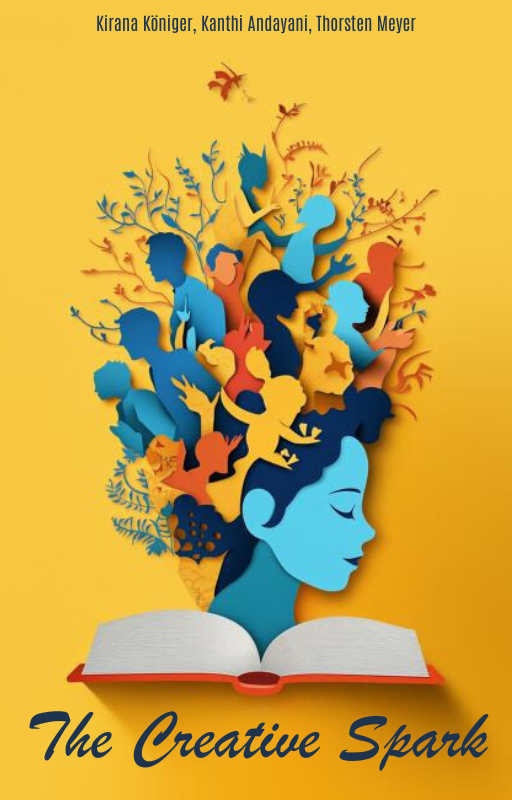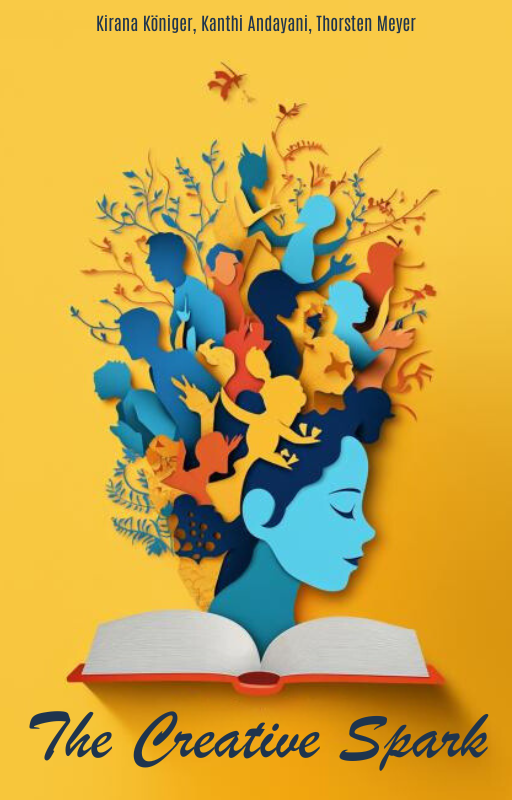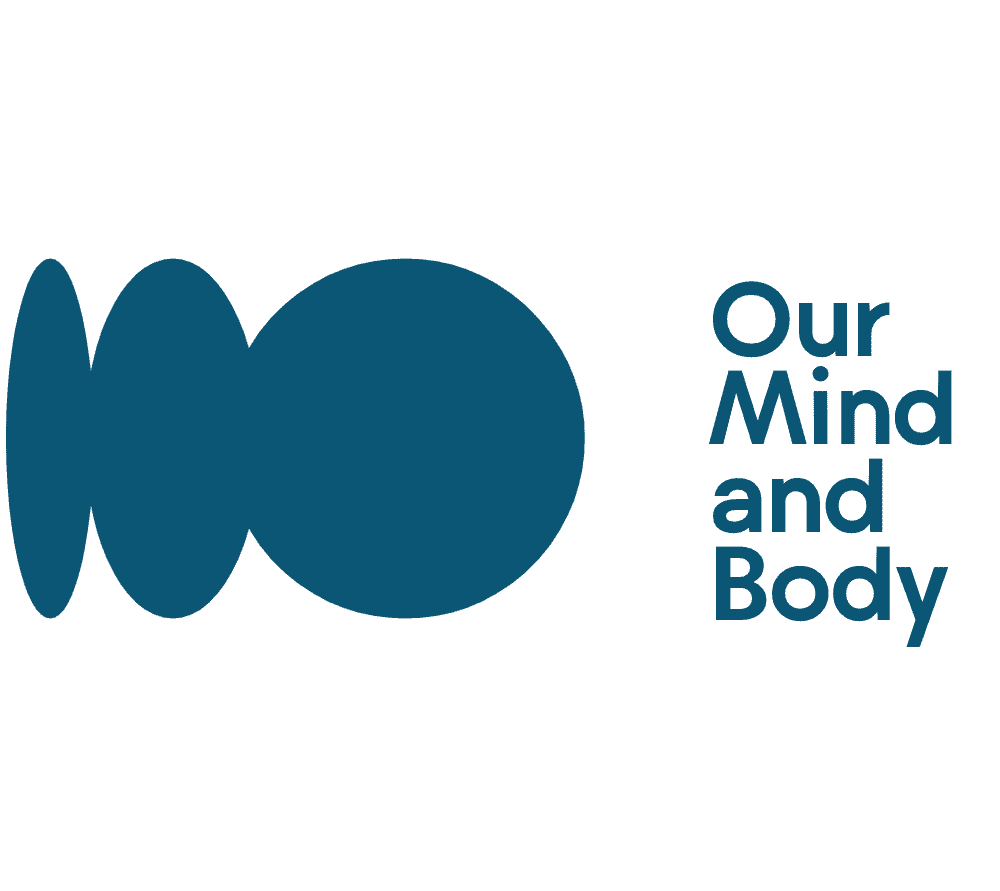Personal Growth
Laughing Your Way to Stress Relief: How Daily Laughter Can Help You Cope with Life’s Struggles

Stress is a manifestation of emotional or physical strain that arises from challenging circumstances. It can stem from a variety of sources such as work-related challenges, family dynamics, health issues, and everyday obstacles. Effective stress management entails implementing strategies to decrease stress levels and promote overall well-being.
When we experience stress, our bodies react in different ways. We may feel increased heart rate, sweating, trembling, headaches and other physical sensations. Our minds might also become foggy; making it difficult to think clearly. Additionally, some people may find themselves more prone to negative feelings such as anger or sadness when under pressure.
The effects of stress depend on the individual and their current situation. Some people are better able to handle stresses than others due to personal preferences, support systems and coping mechanisms developed over time. Understanding our own unique responses to stressors is key for finding balance between living with daily challenges while managing stress effectively. With this knowledge in mind, let’s explore how laughing each day can help us cope with life’s struggles.
Benefits Of Laughter
Letting out a hearty laugh can be immensely helpful for your mental and physical health. It has the power to provide you with welcome stress relief, and even help in emotional healing. Incorporating more laughter into your life is an effective way of dealing with life’s challenges, making it possible to cope better and move forward no matter what comes your way.
Laughter benefits go beyond just providing temporary respite from stressful situations – they have long-term effects too! Research has shown that those who incorporate humour into their lives have greater resilience against depression, anxiety and other negative states of mind. This is thought to be due to endorphins released when laughing which create feelings of happiness and well-being. Moreover, regular laughter helps reduce blood pressure levels, improves immunity as well as aids digestion – all important aspects of good physical health.
In addition to its beneficial effects on mental and physical wellbeing, incorporating humor into our daily lives creates opportunities for social connection as shared laughter strengthens bonds between people. Sharing jokes or funny anecdotes provides us with an outlet for expressing ourselves freely while also giving us a chance to share laughs with friends or family members – something that can prove invaluable during trying times.
Humor enables us to look at difficult situations differently and view them in a positive light. Finding moments of levity may not always be easy but there are many creative ways we can inject some joy into our everyday routines such as watching comedies movies or TV shows, reading humorous books or simply spending time amongst people whose company makes us smile and laugh out loud!
Techniques To Incorporate More Laughter Into Your Life
Laughter can be a powerful tool for combating stress. Incorporating more laughter into your life is a great way to cope with the challenges you face each day. Here are some tips on how to bring more joy and humor into your daily routine:
- Watching Funny Movies: Watching funny movies or TV shows can help lighten your mood and give you a much-needed break from reality. Look for classic sitcoms, romantic comedies, or stand-up specials that make you laugh out loud.
- Read Humorous Books: Reading books that have humorous elements can provide an escape from everyday life while also making you chuckle. Whether it’s fiction, non-fiction, poetry, or something else entirely – choose something that brings a smile to your face!
- Attend Comedy Clubs: If you enjoy live comedy performances, consider checking out local comedy clubs in your area. You could even attend an open mic night if performing onstage isn’t quite your thing yet.
- Laughter Yoga: This unique form of yoga is gaining popularity around the world as a fun way to get people laughing together. In laughter yoga sessions, participants take turns leading others in various breathing exercises and “laughter calls” designed to generate real belly laughs without any jokes required!
Incorporating these activities into your weekly schedule can help keep stress levels down by providing regular opportunities for self-care and relaxation — all through the power of laughter!
Signs That You Need To Laugh More
Laughter is an essential tool for managing our emotional health and reducing stress. But how do you know when it’s time to bring more laughter into your life? Here are a few signs that it might be time to prioritize humor and coping with life’s challenges:
First, if you find yourself feeling overwhelmed or anxious on a regular basis, laughing can help reduce these feelings of unease. A sense of humor can often provide us with the perspective we need to cope better in difficult situations. Additionally, research has shown that people who laugh more tend to experience improved mental wellbeing overall. So if you’re noticing an increase in negative emotions or lack of motivation, finding ways to incorporate more laughter could be beneficial.
Secondly, if you’re surrounded by friends and family but still feel lonely or disconnected from them, then making sure there’s ample opportunity for shared laughter may help bridge those gaps. We all have different coping styles, so connecting through humor can make us feel united during times of struggle. And finally, when faced with challenging tasks such as problem-solving or decision-making, take a moment to inject some levity into the situation – this will allow everyone involved to think outside the box and come up with creative solutions faster than before.
It’s clear that incorporating more laughter into our lives is key for improving our emotional health and helping us cope with life’s challenges. From recognizing the signs that indicate a need for increased humor in our lives to utilizing laughter as part of our problem-solving strategies; learning how to stay positive in difficult times is an important skill worth developing!
How To Stay Positive In Difficult Times
In times of difficulty, it can be difficult to remain positive. But the truth is that a positive attitude can make all the difference when it comes to overcoming life’s challenges. With a few simple strategies and tools in your toolbox, you can learn how to stay upbeat even in tough times.
First, focus on cultivating a resilient mindset by taking time for self-care activities like exercise, meditation, or journaling. These activities not only help reduce stress but also boost your mood and energy levels while promoting an overall sense of well-being. Time management techniques are also key here; setting aside specific periods during the day dedicated solely to relaxation will give your brain much needed down-time from worrying about problems. Additionally, don’t forget the power of laughter! Even if it seems impossible at first, making it a point to laugh each day – no matter what else is happening – can provide huge relief from stress and anxiety.
Next up is recognizing that setbacks are part of life’s journey and understanding that persistence pays off in the end. It might seem hard now, but looking back after having gone through these struggles you’ll likely realize just how much strength and resilience you developed along the way. And finally, don’t underestimate the importance of connecting with others who understand what you’re going through–whether over video chat or phone call—as this kind of social support has been proven to improve physical health as well as mental wellbeing.
Making time for fun and relaxation should always be part of any effort towards staying positive in tough times!
Making Time For Fun And Relaxation
It’s important to make time for fun and relaxation in order to cope with life’s challenges. Leisure activities like going for walks, playing sports, reading a book, or crafting can be great stress relievers. Self-care is key when it comes to managing daily stress levels. Taking time away from our regular routines allows us to take care of ourselves and recharge.
Regularly engaging in leisure activities helps reduce tension and anxiety by releasing endorphins that increase feelings of happiness and well-being. Incorporating hobbies into one’s routine also serves as an outlet for creative expression which can help keep the mind sharp while reducing stress. Additionally, leisure activities may provide social benefits if shared with family or friends; this could lead to increasing self-esteem and overall contentment.
Humor has been found to be an effective coping mechanism when dealing with difficult situations in life. Making time for humor can boost your mood, lighten up a situation, and give you perspective on the current challenge at hand. Laughter is contagious so why not put a smile on someone else’s face? By taking some time out each day for fun and relaxation we are able to equip ourselves with the tools needed to manage life’s difficulties more effectively.
Use Humor As A Coping Mechanism
Laughter is like a balm to the soul, soothing away stress and worries. It’s no surprise that humor has been used as an effective coping mechanism for centuries. Humor can help us process difficult emotions while providing comfort in times of uncertainty. It helps us see life from a different perspective and break down barriers between people. When we’re able to laugh at ourselves, it allows us to view challenging situations with more clarity and acceptance.
Humor can be especially beneficial when dealing with stressful or traumatic events. Studies have shown that laughter releases endorphins, which may help reduce physical pain, tension, and anxiety levels. Laughter also boosts our immune system and increases positive feelings such as joy and contentment. Additionally, sharing humorous stories or jokes with friends can create stronger social connections leading to improved mental health and well-being.
Incorporating humor into our daily lives doesn’t have to be difficult or time consuming; even small doses of laughter each day can make a world of difference in how we handle adversity. Whether you watch your favorite sitcom after work or take part in some lighthearted banter with colleagues during lunchtime – taking time out for moments of levity will do wonders for your overall morale! So make sure to add humor into the mix when trying to cope with life’s challenges – it could just be the key ingredient needed to keep stress levels manageable and find joy within every situation.
Determine What Brings You Joy
Laughter is a great way to cope with the daily stress of life’s challenges, but it’s not enough. To truly find relief from stress and anxiety, you must identify what brings you joy and make it a priority in your life. Joy-seeking can take many forms, including spending time with family and friends, engaging in hobbies or activities that bring you pleasure, or taking up something new that could open doors for potential fulfillment.
Take some time to reflect on what makes you feel joyful and list these activities down so you can easily refer back to them when needed. Maybe reading books brings joy into your life? Or does going for hikes excite you? Identifying joy-activities that give us pleasure is essential for our mental health as part of our self-care routine.
Finding joy doesn’t have to be complicated either; it could simply mean indulging yourself in simple things such as having a cup of coffee while enjoying the view outside your window. Once we become aware of the small moments of joy around us, they will eventually accumulate to create fulfilling days and weeks ahead.
The most important thing is allowing ourselves permission to prioritize finding joy; once we do this, everything else should follow naturally.
Find Supportive People Around You
When it comes to coping with life’s challenges, having a supportive network of people can make all the difference. Surrounding yourself with those who understand and will encourage you through tough times is key for managing emotional distress. Building connections with like-minded individuals that have similar experiences or hardships can also provide effective stress relief.
Creating an encouragement network of friends and family members who can help boost your self-esteem during difficult situations is essential. Having meaningful conversations about one’s struggles and asking for support from these trusted confidants can help build resilience in facing difficulties. Additionally, sharing ideas on different ways to cope with overwhelming emotions such as talking to a therapist or signing up for yoga classes are strategies worth considering.
Having an open dialogue with others helps foster trust within relationships while learning new tips and techniques on how to better manage stressful moments which may arise throughout daily living. Establishing social connections not only helps reduce anxiety but encourages us to stay connected when dealing with life’s obstacles. Going forward, developing healthy strategies for dealing with stress is even more important given our current climate amidst the pandemic.
Develop Healthy Strategies For Dealing With Stress
Laughter is an effective way to cope with life’s challenges, but it isn’t the only tool in our stress-coping arsenal. Developing healthy strategies for dealing with stress can be beneficial for both physical and mental health. We all experience stress differently, so it’s important to know what works best for you.
One of the most important things when developing your own set of healthy strategies is to find time for yourself that doesn’t involve any screens or technology. This could include anything from going on a walk, reading a book, doing some yoga, taking a hot bath, or just sitting quietly and listening to music. Allowing ourselves moments in silence helps us gain perspective and clarity on our current situation. It also gives us an opportunity to practice mindfulness techniques like deep breathing exercises or visualization methods which can help manage anxiety levels while promoting relaxation.
Taking care of your body should also not be overlooked as part of managing your stress levels; eating nutritious meals and getting enough sleep are essential components of overall wellbeing. Regular exercise has been shown to have numerous positive effects including improved mood and increased energy – something we could all use more of! Additionally, speaking to friends, family members or even professionals about how you’re feeling can help provide support and validation during challenging times. Everyone needs someone they trust whom they can turn to when times get tough.
These are just a few tips on how to foster better habits around stress-management that everyone should consider incorporating into their daily lives if they want long-term relief from stressful situations. By actively making efforts towards improving our emotional well-being we can make progress towards alleviating tension in both the mind and body – two things that often go hand in hand in difficult circumstances.
Frequently Asked Questions
What Are Some Of The Physical Effects Of Prolonged Stress?
Prolonged stress can have serious consequences on our mental and physical health. It may seem like an exaggeration, but it’s true that if left unchecked, the effects of stress can become so severe they can be life-threatening! So what are some of the physical effects of prolonged stress? Let’s take a look at how this invisible enemy affects us physically.
The signs and symptoms associated with long-term stress vary from person to person, but usually include:
- Increased heart rate
- High blood pressure
- Digestive problems
- Muscle tension or pain
- Headaches
- Fatigue.
These physical manifestations also often lead to more emotional stress due to worries about one’s own health and ability to cope with everyday situations in life.
Stress management techniques such as counseling, exercise, yoga and mindfulness meditation can help manage the emotional impact of prolonged stress. Other strategies for alleviating chronic stress include eating healthy foods, getting enough sleep, practicing relaxation exercises such as deep breathing and visualization, engaging in activities you enjoy like hobbies or interests, talking openly with family or friends who will listen without judgement and seeking professional help when needed.
By learning how to recognize these physical warning signs early on we can begin taking steps towards preventing them from turning into something worse down the road. With proper guidance and support anyone affected by prolonged stress can learn how to better manage their emotions and improve overall wellbeing – both mentally and physically.
What Are Some Strategies To Make Time For Fun And Relaxation?
I often hear about the importance of making time for fun and relaxation in our busy lives, but it can be difficult to figure out how. Taking a few moments each day to relax can help with stress relief and keep us feeling positive. Here are some strategies that could make taking time to relax more achievable:
- Schedule regular “me-time” into your daily routine. Whether this is reading before bed or going on a walk during lunch, setting aside even just 30 minutes will do wonders for your mental health.
- Find relaxation activities that you enjoy. Everyone has different ways of relaxing – maybe yoga works for one person while another finds solace in listening to music. Experimenting with different methods until you find something that suits you best is key!
- Incorporate fun activities into your week. Even if it’s as simple as playing board games with family or friends – including enjoyable activities into your schedule can also help manage stress levels and increase positivity.
- Make use of smartphone apps designed to reduce anxiety and improve sleep quality — these tools provide invaluable support when dealing with worries or other emotions related to stressful situations.
- Utilize time management skills such as creating lists or using reminders on your phone – combining organization techniques with leisurely activities will ensure there is enough time for both work and play!
It’s important not only to recognize the need for restful activities, but also take action towards achieving them by planning ahead and being mindful of what helps relieve stress most effectively for yourself. Allowing ourselves moments away from our everyday anxieties gives us room to breathe, recharge, and come back stronger than ever before!
How Can I Manage My Stress In A Healthy Way?
Stress has become an epidemic in our modern world, with many of us struggling to manage it healthily. We often forget that there are simple and natural ways to reduce stress and increase relaxation. To help you cope effectively, here are some tips on dealing with stress healthily.
First of all, take a break from the stresses of life by doing something fun and relaxing. Making time for yourself can be difficult but if you plan ahead this will make it easier. Activities such as yoga, meditation or even going for a walk can give your body a much needed rest from everyday worries. Additionally, try to find activities that bring joy into your day like listening to music or spending quality time with friends and family. These feel-good activities will provide stress relief from any anxious thoughts you may have.
It is also important to remember that healthy eating habits can play a role in managing stress levels too. Eating nutritious meals throughout the day helps keep energy levels up which makes it easier to overcome stressful situations when they arise. As well as fuelling the body with good nutrition, drinking plenty of water is essential for keeping hydrated during times of high pressure – so don’t forget to top up those fluids!
Finally, finding moments of laughter each day can be incredibly beneficial for reducing stress naturally. Whether it’s watching funny videos online or simply enjoying conversations with loved ones – taking time out to focus on having fun allows your mind (and sometimes body) to relax while boosting moods at the same time! Don’t underestimate the power of humour in helping you through challenging days; laughing has powerful effects that work wonders for calming down racing thoughts and feelings of nervousness or tension.
So next time you’re feeling overwhelmed by daily pressures, take comfort in knowing that there are plenty of easy strategies available for managing stress healthily – so why not start putting them into action today?
What Are Some Effective Ways To Stay Positive In Difficult Times?
Staying positive in difficult times is not easy, but it can have a big impact on your mental health and wellbeing. In order to maintain an optimistic outlook, there are several strategies you can use such as cultivating a positive attitude, reinforcing optimism, embracing change, and developing self-care habits. By taking the time to practice these methods regularly, we can become more resilient during challenging life events.
Having a positive attitude may seem like a daunting task when dealing with negative situations; however, maintaining an upbeat view of life allows us to take control of our thoughts and emotions. This means consciously choosing words that reflect hope rather than fear or defeatism. We should also try to focus on solutions instead of dwelling on problems so that we don’t get overwhelmed by what’s happening around us. Additionally, setting meaningful goals can provide direction while helping us stay motivated even in tough times.
Another way to stay positive during difficult moments is through reinforcement of optimism. It’s important to remember that not every challenge has a bad outcome – if we look for silver linings in dark clouds then this will help build resilience. We can also reinforce this mindset by creating affirmations that remind us of our strengths and capabilities when faced with adversity. Furthermore, building strong relationships with supportive people who understand our experiences can be incredibly helpful as they provide emotional support at tough times.
Finally, embracing change and engaging in self-care activities are other effective ways to remain positive in hard times. Change brings new opportunities which could open doors to exciting possibilities; yet often the unknown causes an anxious feeling within ourselves which needs to be acknowledged and accepted before moving forward confidently into the future. Self-care habits enable us to switch off from reality when needed so that we can recharge emotionally – things like reading books, listening to music or going for walks all assist in restoring balance after stressful periods.
By utilizing these different approaches as part of our daily lives we’re able create healthier coping mechanisms for managing stress during challenging circumstances – ultimately enabling us to lead happier lives overall
What Are Some Common Signs That I Need To Laugh More?
Are you feeling stressed, overwhelmed, and unable to cope with life’s challenges? It may be time to take a closer look at your laughter levels. Laughter is an incredibly powerful tool for reducing stress and can help us stay positive in difficult situations. Recognizing the signs that you need to laugh more can have profound physical and mental health benefits.
One of the most common signs of lack of laughter is noticing a steady increase in your stress level. If it feels like every situation is making you grumpier or feel more anxious than usual, it may be because you are not taking enough time to laugh. Other symptoms include fatigue, irritability, difficulty concentrating, and loss of appetite. All these issues could indicate that you need to make more time for laughter in your life.
Taking even just a few moments each day to find humor or joy can do wonders for our wellbeing. Here are some ways we can incorporate more laughter into our lives:
- Spend time with friends who make you laugh
- Watch comedies movies or TV shows
- Read humorous books
- Listen to stand-up comedy podcasts
- Hang out with children – they know how to enjoy life!
These activities will not only bring smiles but also provide relief from daily worries and anxieties as well as boost energy levels and creativity. Studies show that laughing has many other amazing benefits such as improved immunity, increased endorphins which act as natural painkillers, better sleep quality and reduced blood pressure.
It’s important that we all recognize when we need extra doses of humor in our lives so we don’t become overwhelmed by negative emotions or stressful situations. Whether it’s through spending time with funny people or watching a lighthearted movie, carving out some “laughter time” should always be part of our self-care routine – especially during tough times!
Conclusion
The truth is, life can be hard. It’s not easy to cope with life’s challenges and it often feels like we’re burdened by stress on a daily basis. But instead of giving into the pressure, why not make it a point to laugh each day? Not only will this help you feel better in the moment, but it can also have lasting positive effects on your mental health in the long run.
When I’m feeling overwhelmed by stressful situations, I like to take time for myself and do something that brings me joy; whether that means going for a walk or catching up with an old friend over coffee. Taking some time away from difficult circumstances can help you gain perspective and clarity about what needs to be done next. Additionally, surrounding yourself with people who bring out positivity in you makes all the difference too!
It may sound simple, but laughter really is one of the best medicines when it comes to dealing with life’s hardships. So don’t be afraid to find ways throughout your day where you can let go of worries and simply enjoy – even if just for a few minutes at a time. With practice and dedication, laughing more could become second nature – making life’s bumps along the way less intimidating and much easier to tackle head-on!
Meet Kalinda, the passionate and visionary Editor-in-Chief of OurMindAndBody.com. Kalinda is a beacon of light in the realm of holistic well-being, and her mission is to positively impact the lives of others by inspiring them to embrace a healthier and more fulfilling lifestyle.
With a deep-rooted love for meditation, yoga, and spirituality, Kalinda’s journey toward self-discovery and personal growth started at a young age. She found solace and strength in these practices, which not only helped her cope with the challenges of life but also provided her with a profound sense of purpose. Eager to share the transformative power of these ancient disciplines, Kalinda embarked on a path to spread awareness and understanding.
Personal Growth
Book Review: “The Creative Spark: Unleashing Your Inner Artist”

Rediscovering Creativity in the Digital Age
In a world where digital distractions often overshadow our creative instincts, “The Creative Spark: Unleashing Your Inner Artist” emerges as a timely and empowering guide. Authored by Kirana Königer, Kanthi Andayani, and Thorsten Meyer, this book provides a comprehensive and accessible approach to reigniting the creative flame within each of us.
A Global Tapestry of Creative Wisdom
The authors draw on their diverse backgrounds—Indonesian roots, European influences, and global experiences—to weave a rich tapestry of creative insights. This multicultural perspective is not just a backdrop but the foundation of the book’s philosophy, which sees creativity as a universal language that transcends cultural and geographical boundaries.

Expanding the Boundaries of Creativity
“The Creative Spark” encourages readers to rethink creativity, moving beyond the traditional confines of the arts. The authors argue convincingly that creativity is a fundamental life skill, essential for problem-solving, personal growth, and professional success across all domains.
The Science of Creativity
Anchored in scientific research, the book explores:
- The neurological foundations of creativity
- The roles of different brain regions in creative thinking
- The impact of neuroplasticity on the development of creative skills
- How environment and lifestyle choices affect creative potential
Practical Exercises for Creative Development
Each chapter offers a variety of hands-on exercises designed to nurture creativity across different fields:
- Writing prompts to spark the imagination of aspiring authors
- Visual challenges for artists and designers
- Culinary experiments for food enthusiasts
- Mindfulness practices to enhance creative awareness
- Cross-disciplinary projects that blend multiple forms of artistic expression
Overcoming Creative Challenges
The book provides practical strategies for overcoming common obstacles in the creative process, including:
- Breaking through creative blocks and periods of stagnation
- Overcoming self-doubt and imposter syndrome
- Managing perfectionism and the fear of failure
- Balancing creative pursuits with everyday responsibilities
Creativity in the Digital Era
The authors thoughtfully examine how technology can both enhance and hinder creativity, discussing:
- The potential of digital tools to support creative processes
- Balancing digital and analog approaches to creativity
- Leveraging social media to share and promote creative work
- Addressing ethical considerations in the age of AI-generated art
A Journey of Self-Discovery
Throughout the book, the authors share personal stories from their own creative journeys, adding depth and relatability to the content. Readers are invited to embark on their own journey of self-discovery, guided by reflective questions and exercises designed to help uncover their unique creative strengths.
Critical Analysis
Strengths:
- A broad and inclusive approach that extends beyond traditional artistic boundaries
- A multicultural perspective offering a wealth of global insights
- A strong scientific foundation combined with practical applications
- An accessible tone that makes creativity approachable for all readers
Considerations:
- The broad scope of topics may be overwhelming for some readers
- Certain cultural references may resonate differently depending on the audience
- Some advanced readers may find familiar concepts, though they are presented with fresh insights
Conclusion: A Guide to Creative Renewal
“The Creative Spark: Unleashing Your Inner Artist” is more than just a guide to artistic expression—it’s a blueprint for living a more imaginative and fulfilling life. By redefining creativity as a core human trait, the authors offer a work that has the potential to transform not just how readers approach art, but how they approach life itself.
Rating: 4.85/5 stars
Highly recommended for its inclusive approach, scientific grounding, and transformative potential, “The Creative Spark” stands out as a valuable resource for anyone looking to reignite their creative passions and embrace a more inspired way of living.
Meet Nadi, the soulful writer and explorer of inner realms who graces OurMindAndBody.com with her profound insights and heartfelt wisdom. With a profound passion for mindfulness, meditation, and spiritual growth, Nadi weaves words that touch the hearts and minds of readers, leaving a lasting impact on their well-being journey.
Rooted in a background of philosophy and psychology, Nadi’s curiosity about the human mind and the mysteries of the soul led her on a transformative path of self-discovery. Drawn to the transformative power of mindfulness and meditation, she embarked on a quest to understand the intricacies of these practices, not only for her own growth but also to inspire others to embark on their own inner journeys.
Personal Growth
Clearing Brain Fog: Top Foods For Mental Clarity

Experiencing mental fog is like navigating through a dense forest without a map. It can be frustrating, exhausting, and hinder your ability to think clearly and be productive.
But fear not, because there is a way to clear the fog and regain mental clarity. By incorporating certain foods into your diet, you can nourish your brain and improve cognitive function.
In this article, we will explore the top foods that can help clear brain fog and enhance mental clarity.
Key Takeaways
- Brain fog is a state of mental confusion and exhaustion that hinders productivity and quality of life.
- Unhealthy eating habits cause inflammation and cognitive decline, while nutrient-rich foods repair cells and promote brain function.
- Blueberries, fatty fish, nuts, dark chocolate, leafy greens, turmeric, and green tea are foods that can improve brain health and clarity.
- A balanced diet with brain fog-fighting foods is crucial for mental clarity, and integrating these foods into your diet can help improve cognitive function and memory recall.
Top Brain Fog-Fighting Foods
I love incorporating these brain fog-fighting foods into my diet to improve my mental clarity and overall brain health.
Blueberries are a fantastic choice as they are rich in antioxidants, which prevent oxidative stress and inflammation in the brain. They also enhance memory function, making them a great addition to my daily routine.
Fatty fish, like salmon and sardines, are another favorite of mine. They contain omega-3 fatty acids that improve brain health, strengthen memory, and enhance cognitive function.
Nuts are a convenient and tasty option as they contain healthy fats, protein, and fiber, all of which contribute to improved cognitive functioning.
Dark chocolate, in moderation, is a delicious way to protect against oxidative damage and improve cognitive function with its flavonoids.
Leafy greens, such as spinach and kale, are nutritional powerhouses that provide vitamins and antioxidants to protect the brain.
Lastly, turmeric, with its anti-inflammatory and antioxidant properties, is excellent for improving memory function.
Incorporating these brain fog-fighting foods into my diet has made a noticeable difference in my mental clarity and overall brain health.
Importance of Nutrients
Nutrients from a balanced diet are vital for promoting brain health and enhancing cognitive function and memory recall. When it comes to clearing brain fog and improving mental clarity, certain nutrients play a key role.
Here are three essential nutrients that can help boost your brainpower:
-
Omega-3 Fatty Acids: These healthy fats found in fatty fish like salmon and sardines are crucial for brain health. They have been shown to improve memory and cognitive function, making them an excellent choice for combating brain fog.
-
Antioxidants: Foods rich in antioxidants, such as blueberries, protect the brain from oxidative stress and inflammation. They also enhance memory function, helping to clear mental fog.
-
Vitamin E: This powerful antioxidant found in nuts like almonds and sunflower seeds has been linked to improved cognitive functioning. Including these nutrient-rich foods in your diet can provide the essential vitamins and minerals needed for optimal brain health and mental clarity.
Gut Health and Cognitive Function
Improving gut health is crucial for enhancing cognitive function and promoting optimal brain function. The gut microbiome, which consists of trillions of microorganisms, plays a significant role in our overall health, including our mental well-being. Research has shown that a healthy gut contributes to emotional stability and cognitive capacity.
When the gut is filled with beneficial bacteria, it reduces anxiety and depression levels, leading to improved mental clarity. Incorporating whole foods into our diet is key to maintaining a healthy gut. Foods like fruits, vegetables, and whole grains are rich in fiber and essential nutrients that support gut health. Additionally, probiotic-rich foods like yogurt and kimchi can replenish the gut with beneficial bacteria.
By prioritizing gut health through a balanced diet, we can boost our cognitive function and experience greater mental clarity.
Effects of Diet on Sleep
Eating a balanced diet with nutrient-rich foods can positively impact sleep quality and duration. Poor diet choices, such as consuming excessive sugar and processed foods, can disrupt our natural sleeping habits, leaving us feeling fatigued and decreasing our cognitive function.
On the other hand, a diet that includes healthy fats and complex carbohydrates can improve our sleep. When we have sound slumber, we experience enhanced mental clarity and increased energy levels throughout the day.
Incorporating foods like blueberries, fatty fish, nuts, dark chocolate, leafy greens, turmeric, and green tea into our meals can help promote a restful night’s sleep. So, by making conscious choices about what we eat, we can improve both our diet and our sleep, leading to better mental clarity and overall well-being.
Blueberries: Memory Enhancer
Indulging in a handful of juicy blueberries is like unleashing a burst of sunshine in my mind. Their antioxidants work wonders in boosting my memory function. Blueberries are packed with antioxidants that help prevent oxidative stress and inflammation in the brain, ultimately enhancing memory function.
These little berries are also rich in flavonoids, which have been shown to improve cognitive function and protect against oxidative damage. Not only are blueberries delicious, but they are also a practical choice for improving mental clarity.
Whether enjoyed by themselves, added to a smoothie, or sprinkled on top of yogurt, incorporating blueberries into my diet is an easy and tasty way to support my brain health.
So, whenever I feel the fog rolling in, I reach for a handful of blueberries to give my memory a boost and clear away the mental haze.
Fatty Fish: Cognitive Booster
When I include fatty fish in my diet, I notice a significant boost in my cognitive abilities.
Fatty fish, such as salmon, trout, and sardines, are rich in omega-3 fatty acids, which are essential for brain health. These fatty acids help improve memory, enhance cognitive function, and even protect against age-related cognitive decline.
Research has shown that a regular intake of omega-3 fatty acids can improve attention, focus, and overall mental clarity. Additionally, the anti-inflammatory properties of omega-3s can reduce brain fog and promote a healthy brain.
Incorporating fatty fish into my meals not only provides me with a delicious and satisfying option but also supports my brain health and keeps my mind sharp.
Nuts: Brain Function Improvement
Including nuts in my diet has significantly improved my brain function and cognitive abilities. Nuts, such as almonds, walnuts, and cashews, are packed with healthy fats, protein, and fiber, all of which are essential for optimal brain functioning.
The healthy fats in nuts, including omega-3 fatty acids, help nourish the brain and support cognitive processes like memory and learning. Additionally, the protein in nuts provides a steady supply of amino acids that are necessary for neurotransmitter production, which influences mood and cognitive function.
The fiber in nuts helps regulate blood sugar levels, preventing energy crashes and promoting sustained mental clarity. I have found that incorporating a handful of nuts into my daily routine not only satisfies my snack cravings, but also boosts my brain power and enhances my overall cognitive performance.
Dark Chocolate: Cognitive Protection
Dark chocolate has been an essential part of my diet for its cognitive protection benefits. Not only is it delicious, but it also contains flavonoids that improve cognitive function and protect against oxidative damage. Flavonoids have been shown to enhance memory and attention, making dark chocolate a great choice for clearing brain fog and promoting mental clarity.
Studies have found that the antioxidants in dark chocolate can increase blood flow to the brain, which improves cognitive function. Additionally, dark chocolate has been linked to a reduction in inflammation in the body, including the brain, which can contribute to better mental health.
When choosing dark chocolate, aim for varieties with a high percentage of cocoa (70% or higher) to maximize the benefits. Remember to enjoy it in moderation as part of a balanced diet, as it is still high in calories.
So indulge in a small piece of dark chocolate to give your brain a boost and improve your mental clarity.
Frequently Asked Questions
How does brain fog affect productivity and quality of life?
Brain fog, like a dense fog over a city, impairs focus, memory, and energy levels, hindering productivity and diminishing quality of life. It’s crucial to address brain fog through a balanced diet and lifestyle choices for improved mental clarity.
Are there any other factors besides unhealthy eating habits that can cause brain fog?
Yes, besides unhealthy eating habits, other factors such as lack of sleep, chronic stress, hormonal imbalances, certain medications, and underlying medical conditions can also contribute to brain fog. It’s important to address these factors for improved mental clarity.
What are some nutrients that are essential for brain health and cognitive function?
Some essential nutrients for brain health and cognitive function include antioxidants from blueberries, omega-3 fatty acids from fatty fish, healthy fats from nuts, flavonoids from dark chocolate, vitamins from leafy greens, and anti-inflammatory properties from turmeric.
How does the gut microbiome affect emotional stability and cognitive capacity?
The gut microbiome plays a crucial role in emotional stability and cognitive capacity. Healthy gut organisms reduce anxiety and depression levels, while an imbalance can lead to mental health issues. Taking care of your gut health is essential for overall well-being.
Can a balanced diet with brain fog-fighting foods improve sleep quality?
Yes, a balanced diet with brain fog-fighting foods can improve sleep quality. A diet rich in healthy fats and complex carbs promotes sound slumber, leading to enhanced mental clarity and energy levels.
Conclusion
In conclusion, our brains deserve the best fuel to function at their peak. Just like a well-oiled machine, we can clear away the brain fog and unlock mental clarity with the power of food.
These brain fog-fighting foods are like superheroes, swooping in to save the day. Blueberries, fatty fish, nuts, dark chocolate – each one holds the key to unlocking our cognitive potential.
So let’s nourish our brains, fuel our minds, and banish brain fog for good. The power is in our hands, and on our plates.
Say hello to Cypress, the soulful wordsmith behind the insightful articles at OurMindAndBody.com. Cypress is a gifted writer who weaves words with grace and precision, using language as a powerful tool to inspire, heal, and uplift the spirits of readers.
With a background in literature and a passion for personal growth, Cypress brings a unique perspective to the world of well-being and spirituality. Having experienced the transformative effects of meditation and yoga firsthand, Cypress is deeply connected to the essence of these practices and their potential to enrich lives.
Personal Growth
Smart Investing: Maximizing Returns And Minimizing Risk

Sometimes fate has a funny way of guiding us towards what we really need. By pure chance, you have stumbled upon an article on smart investing – a topic that could potentially change the trajectory of your financial future.
Investing wisely is all about maximizing returns while minimizing risk, and it’s never too early to start. With the right knowledge, tools, and guidance, you can navigate the complex world of investments and make informed decisions that will lead to long-term success.
So, let’s dive in and explore the key principles of smart investing, shall we?
Key Takeaways
- Investing at a young age can lead to significant growth in account balance over time.
- Diversifying investments reduces risk and increases potential returns.
- Regularly monitoring investments and adjusting strategies based on market conditions is important.
- Understanding tax implications and implementing tax-efficient investment strategies can maximize returns.
What is Investing?
Investing is the process of allocating funds into different investment options with the goal of maximizing returns and minimizing risk. It involves carefully selecting investment instruments that have the potential to generate income or appreciate in value over time. By diversifying investments across various asset classes, such as stocks, bonds, and real estate, investors can reduce the risk associated with any single investment.
It is important to understand the merits and demerits of different investment options, as well as their tax implications. Regular monitoring of investments and staying updated on market trends is crucial for informed decision-making. Patience, discipline, and a realistic budget are essential for long-term investment success. Seeking mentorship or taking investment courses can provide valuable guidance in navigating the complex world of investing.
Starting Early
Beginning early in the world of finance is like planting a small seed that has the potential to grow into a mighty oak, providing shade and stability for years to come. When it comes to investing, starting early is crucial for maximizing returns and minimizing risk. Here are three reasons why:
-
Compounding Growth: Investing at a young age allows your money to grow exponentially over time. By starting early, you can take advantage of compounding, where your investments generate returns that are reinvested, leading to even higher returns in the future.
-
Financial Security: Early investments can minimize financial strain and stress in later years. By building a solid investment portfolio early on, you can create a cushion for future expenses, such as buying a house, starting a family, or funding your retirement.
-
Time to Learn and Recover: Starting early gives you ample time to learn about different investment options and strategies. It also provides a buffer to recover from any potential losses. With time on your side, you can take calculated risks, learn from your mistakes, and make informed investment decisions.
By starting early, you can set yourself up for long-term financial success and achieve your financial goals with greater ease.
Weighing Options
When it comes to choosing investment options, I consider the merits and demerits of different instruments before making a decision.
Retirement schemes offer stability but may have limited returns, while stocks provide income through buying and selling shares.
ETFs allow investors to purchase and sell stocks at listed prices, while bonds offer monthly or annual interest as a loan to a government or corporate entity.
Each investment instrument has its own advantages and disadvantages, and it’s important to weigh these factors carefully.
By diversifying investments across different asset classes, including real estate and international markets, I can reduce risk and increase potential returns.
A mix of stocks, bonds, and other assets is advisable for long-term success.
Ultimately, making a wise selection of investment options is crucial for maximizing returns and minimizing risk.
Getting an Account
Knowing where to go and which platforms to use for getting an investment account is crucial for me. With so many options available, it’s important to choose a trustworthy and cost-friendly platform.
One platform that stands out for beginners like me is Sofi Invest. Not only does it provide access to multiple investment opportunities, but it also offers valuable information on different types of investment accounts. This makes it easier for me to make informed decisions based on my financial goals and risk tolerance.
By using an online platform like Sofi Invest, I can easily manage my investments and track their performance. It’s reassuring to know that I have a reliable platform to rely on as I begin my investing journey.
Education and Mentorship
I believe that taking an investment course or finding a mentor would be beneficial for me to gain valuable insights and knowledge in the field of investing. Learning from successful investors can provide me with valuable tips and strategies that can help maximize my returns and minimize risks. Having a realistic budget for my initial investments is crucial, and starting small can be a viable approach. I can also borrow ideas from successful investors in my area of interest to further enhance my investment strategy. To grab the attention of the audience, I have created a table below that highlights the importance of education and mentorship in smart investing:
| Importance of Education and Mentorship |
|---|
| Gain valuable insights and knowledge |
| Learn from successful investors |
| Develop effective investment strategies |
| Minimize risks and maximize returns |
Taking the time to educate myself and seek mentorship will provide a strong foundation for my investment journey. It will equip me with the necessary tools and understanding to make informed decisions and navigate the complex world of investing.
Diversification
Diversifying my investments across different asset classes allows for a more balanced and potentially profitable portfolio. By spreading my investments, I can reduce the risk associated with any single investment and increase my potential returns. Here are four reasons why diversification is important:
-
Risk reduction: Spreading investments across various asset classes such as stocks, bonds, real estate, and international markets helps mitigate the risk associated with any one investment. If one asset class underperforms, the others may still provide positive returns.
-
Potential for higher returns: Different asset classes have varying levels of returns over time. By diversifying, I can take advantage of the potential growth in different sectors and markets, increasing the likelihood of achieving higher overall returns.
-
Protection against market volatility: By having a mix of investments, I can protect myself against market fluctuations. When one asset class experiences a downturn, others may be performing well, providing a cushion against losses.
-
Increased opportunities: Diversification opens up opportunities to invest in different industries, sectors, and geographical regions. This allows me to benefit from global exposure and take advantage of emerging markets or sectors that may offer higher growth potential.
Overall, diversification is a key strategy for maximizing returns and minimizing risk in my investment portfolio.
Understanding Risk and Reward
Understanding the relationship between risk and reward is crucial for making informed investment decisions. When it comes to investing, there is an inherent trade-off between the two.
Higher-risk investments have the potential for higher returns, but they also carry a greater chance of loss. On the other hand, lower-risk investments typically offer more stability but may have limited returns.
Assessing your risk tolerance is important before investing, as everyone’s comfort level with risk varies. By diversifying your investments across different asset classes and spreading your risk, you can both mitigate risk and increase potential returns.
Balancing risk and reward is key for long-term success in investing. Regularly monitoring your investments, staying updated on market trends, and adjusting your strategies accordingly will help you navigate the ever-changing investment landscape.
Seeking professional advice can also provide valuable insights and guidance.
Regular Monitoring
Regularly reviewing investment performance can help investors make informed decisions and take advantage of market opportunities. It is essential to monitor investments regularly to stay updated on market trends and news. By doing so, investors can adjust their investment strategies based on current market conditions.
Regularly reviewing investment performance allows for informed decision-making and helps investors identify any necessary adjustments to their portfolio. Additionally, seeking professional advice for investment monitoring can provide valuable insights and guidance.
Monitoring investments ensures that investors can stay on top of their financial goals and make necessary adjustments to maximize returns and minimize risk. In summary, regular monitoring is a crucial aspect of smart investing, enabling investors to make informed decisions and stay ahead of the market.
Markdown list:
- Stay updated on market trends and news
- Adjust investment strategies based on market conditions
- Seek professional advice for investment monitoring
Long-Term vs Short-Term
Moving on from the importance of regular monitoring, let’s now delve into the comparison between long-term investing and short-term trading.
Long-term investing involves holding investments for an extended period, allowing them to grow and compound over time. It is a more passive approach, suitable for investors looking for steady, consistent returns.
On the other hand, short-term trading involves buying and selling investments quickly to take advantage of short-lived market fluctuations. This approach requires active monitoring and quick decision-making. While short-term trading can potentially yield higher returns, it also comes with increased risk and requires a deeper understanding of market trends.
Both approaches have their advantages and disadvantages, and the choice between them depends on individual goals, risk tolerance, and investment strategy.
Tax Considerations
When it comes to tax considerations in investing, I always consult with a tax professional to ensure I have a clear understanding of the tax implications of different investment options. It is crucial to be aware of the tax treatment of each investment to maximize returns and minimize tax liabilities.
Here are a couple of key points to consider:
-
Different investment options have different tax treatments:
-
Stocks and bonds may be subject to capital gains tax when sold.
-
Dividends from stocks may be taxed at a different rate than interest income from bonds.
-
Retirement accounts such as IRAs or 401(k)s offer tax advantages like tax-deferred growth or tax-free withdrawals, depending on the type.
-
Tax-efficient investment strategies can maximize returns:
-
Utilizing tax-advantaged accounts can help minimize taxes on investment earnings.
-
Tax-loss harvesting, where you sell investments at a loss to offset capital gains, can reduce your overall tax liability.
By understanding the tax implications and implementing tax-efficient strategies, I aim to optimize my investment returns while staying compliant with tax regulations.
Importance of Patience
To achieve long-term investment success, I have learned that patience is a crucial virtue. It is important to resist the temptation of making impulsive decisions based on short-term market fluctuations. Instead, I have found that sticking to a well-defined investment plan and maintaining a consistent approach is key.
By avoiding emotional reactions to market ups and downs, I can make informed decisions that align with my long-term goals. Patience allows me to ride out the inevitable market volatility and stay focused on the bigger picture. It also helps me avoid unnecessary stress and panic, which can lead to poor investment choices.
Ultimately, patience and discipline contribute to maximizing returns and minimizing risk in the world of investing.
Frequently Asked Questions
How do I determine my risk tolerance when investing?
To determine my risk tolerance when investing, I assess my financial goals, time horizon, and comfort level with volatility. I consider my willingness to take on risk, my ability to handle potential losses, and my overall investment objectives.
What are some common mistakes to avoid when starting to invest?
When starting to invest, it’s important to avoid common mistakes such as not conducting thorough research, investing without a plan, letting emotions drive decisions, not diversifying, and neglecting to regularly monitor and adjust investments.
Are there any investment options that can provide both stability and high returns?
Yes, there are investment options that can provide both stability and high returns. Some examples include dividend-paying stocks, real estate investment trusts (REITs), and certain bond funds. It’s important to research and assess the risk before investing.
How can I determine if a specific investment platform is trustworthy?
To determine if a specific investment platform is trustworthy, I would research its reputation, read reviews from other investors, and check if it is regulated by reputable financial authorities. Additionally, I would look for transparency, security measures, and customer support options.
What are some strategies for minimizing taxes on investment gains?
To minimize taxes on investment gains, I recommend utilizing tax-efficient investment strategies, such as investing in tax-advantaged accounts like IRAs or 401(k)s, harvesting tax losses, and holding investments for longer periods to qualify for lower capital gains tax rates.
Conclusion
In conclusion, smart investing is all about maximizing returns and minimizing risk. It’s about starting early and making wise choices. It’s about diversifying investments and regularly monitoring their performance. It’s about considering tax implications and being patient for long-term success.
But let’s be honest, who has the time or energy for all that? It’s just so much easier to let someone else handle it and hope for the best. So, why bother with all this smart investing stuff when you can just cross your fingers and hope for a lucky break?
Say hello to Cypress, the soulful wordsmith behind the insightful articles at OurMindAndBody.com. Cypress is a gifted writer who weaves words with grace and precision, using language as a powerful tool to inspire, heal, and uplift the spirits of readers.
With a background in literature and a passion for personal growth, Cypress brings a unique perspective to the world of well-being and spirituality. Having experienced the transformative effects of meditation and yoga firsthand, Cypress is deeply connected to the essence of these practices and their potential to enrich lives.
-

 Aura3 months ago
Aura3 months agoThe Essence Of Spiritual Energy: Unveiling Its Power And Impact
-

 Aura3 months ago
Aura3 months agoTurning Off Aura Frame: Tips And Troubleshooting
-

 Inspiration3 months ago
Inspiration3 months agoThe Significance Of Blue Green Aura: Creativity, Healing, And Spiritual Connection
-

 Aura3 months ago
Aura3 months agoThe Vibrant Yellow Aura: Creativity, Optimism, And Communication
-

 Spirituality3 months ago
Spirituality3 months agoHow to Learn About Spiritual Energy: A Beginner's Guide!
-

 Aura3 months ago
Aura3 months agoThe Spiritual Significance Of The White Aura
-

 Aura3 months ago
Aura3 months agoThe Spiritual Significance Of Stray Cat Visits: Protection, Independence, And Intuition
-

 Aura3 months ago
Aura3 months agoThe Spiritual Power Of Neon Green Auras: Healing, Growth, And Harmony
















